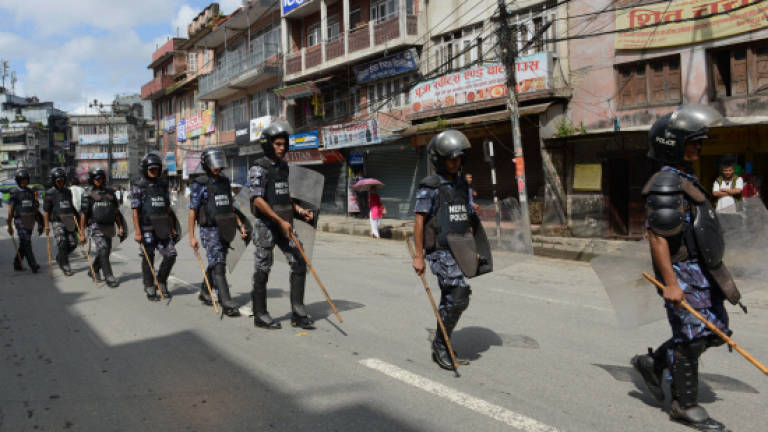Seven Nepal police killed in clashes with anti-charter protesters

KATHMANDU: Seven police officers were killed in western Nepal Monday in clashes with demonstrators protesting against a proposed new constitution, police said.
The government said it was sending in the army after the clashes in Kailali district in the remote far west of the country, where authorities said there were reports three demonstrators may also have died.
Local media said thousands of protesters attacked police with axes, spears and bricks, although this could not immediately be confirmed.
"So far we have confirmation that seven have died in the protests, including five police and two members of the armed police force," senior superintendent of police, Hemant Bahadur Pal, told AFP in Kathmandu.
Deputy district chief Udaya Bahadur Singh Thakuri warned that the death toll could rise further.
"There are many wounded, they are being brought into the hospital," Thakuri told AFP.
"We have heard reports that ... three protesters have also been killed, we are trying to confirm the details."
A new national constitution presented in parliament on Sunday aims to restructure Nepal as a federal state made up of seven provinces.
The protesters argue that the new borders will discriminate against historically marginalised communities.
Monday's violence erupted as members of the Tharu ethnic minority demonstrated to demand their own separate province.
Home Minister Bam Dev Gautam said the government would send troops to the area to try to bring the situation under control, and appealed for peace.
"At a stage when we are heading to a new era ... we must call on people to not be involved in activities that disturb social harmony and ignite ethnic hatred," Gautam told lawmakers.
He said the area had been declared a "riot-stricken zone" and the army deployed.
Nepal's main parties struck a breakthrough deal on the charter in June after April's devastating earthquake helped end years of wrangling that had left the impoverished Himalayan nation in political limbo.
Work on a new national constitution began in 2008, two years after the end of a decade-long Maoist insurgency that left an estimated 16,000 people dead and brought down the 240-year-old Hindu monarchy. — AFP